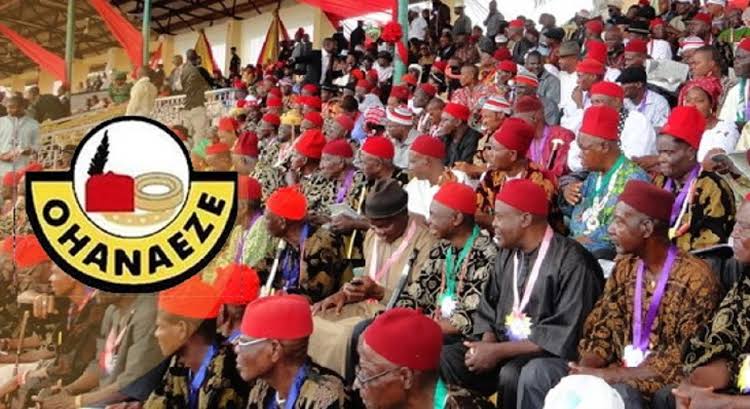
The Apex Igbo Socio-Cultural Organization, Ohanaeze Ndigbo, hereby expresses its profound appreciation to General Ibrahim Badamasi Babangida (IBB) for his remarkable courage in clarifying that the 1966 coup was not an Igbo coup. This declaration is not merely a historical correction but a beacon of hope that signals the potential “End of Vindictiveness and Cruelty Against the Igbo.” It marks a crucial step towards addressing the long-standing consequences of retaliatory governmental policies that have perpetuated ethnic cleansing and animosity against the Igbo over the past five decades.
Ohanaeze Ndigbo lauds IBB for his insightful remarks during the launch of his memoir, A Journey in Service. His unequivocal affirmation that the January 1966 coup should not be inaccurately attributed to the Igbo serves to correct a grievous mischaracterization that has inflicted unimaginable suffering upon our people. This wrongful designation led to a series of disastrous consequences, including the July 1966 counter-coup against a military head of state of Igbo descent and violent riots against Igbo residents in Northern Nigeria prior to the Biafra War. Most tragically, it culminated in the systematic extermination of approximately three million Igbos during the Biafra War—a calamity that continues to haunt our collective memory.
In the aftermath of the conflict, the Igbo people have borne the brunt of historical injustices and enduring marginalization, reflected in our least number of States and least political representations within the Nigerian state. The conspicuous absence of federal investment in the Southeast, the deliberate closure of critical economic routes such as the Calabar seaport, and the imposition of discriminatory policies—such as the quota system—have all conspired to undermine our socio-economic development. Furthermore, the ongoing political machinations that preclude the ascension of an Igbo individual to the nation’s presidency over the past fifty-five years stand as a testament to the systemic inequities entrenched in our society.
In light of this treacherous historical narrative and the contemporary challenges faced by the Igbo, Ohanaeze Ndigbo reiterates the demands established during the 1999 Justice Oputa-led Judicial Commission for the Investigation of Human Rights Violation Panel. It is imperative to recognize that the Federal Government, under General Yakubu Gowon, orchestrated an unlawful bombardment and shelling of Igbo land during the Nigeria-Biafra War, resulting in the overwhelming loss of life, predominantly among vulnerable populations such as women and children.
The revelations from General Babangida’s memoir strike a profound chord, revealing deep-seated injustices that have been systematically ignored. In light of these findings, we call upon President Bola Ahmed Tinubu to summon the moral fortitude necessary to issue a public and unreserved apology on behalf of past military regimes, particularly the Gowon administration, for the grievous wrongs inflicted upon the Igbo nation. Such acknowledgment of our plight is crucial, especially in relation to the persistent violations of Igbo rights and the destruction of our properties in the North and Southwest regions—crimes that resonate painfully in our history, even fifty-five years after the Biafra War’s conclusion.
Moreover, it must be emphasized that Ohanaeze’s previous stance articulated at the Oputa Panel—that the Federal Government must remit reparations totaling ten trillion naira to the Igbo—remains firmly in place. This demand is not a mere figure but a necessary step towards affirming the dignity and humanity of the Igbo people, addressing the profound scars left by years of violation and neglect.
While it is noted that in more just societies, individuals like General Babangida would likely face accountability for their roles in such tragedies, the essence of our culture compels us to offer forgiveness. Despite our suffering, we choose the path of reconciliation over retribution.
As we await a response from President Tinubu, we urge him to recognize the magnitude of this moment—not simply as a political necessity but as a moral obligation. The call for acknowledgment, an official apology, and the provision of reparative justice is not merely a demand; it is a plea for peace, healing, and unity within the broader Nigerian narrative.
Mazi Okechukwu Isiguzoro
Deputy President General
Ohanaeze Ndigbo





